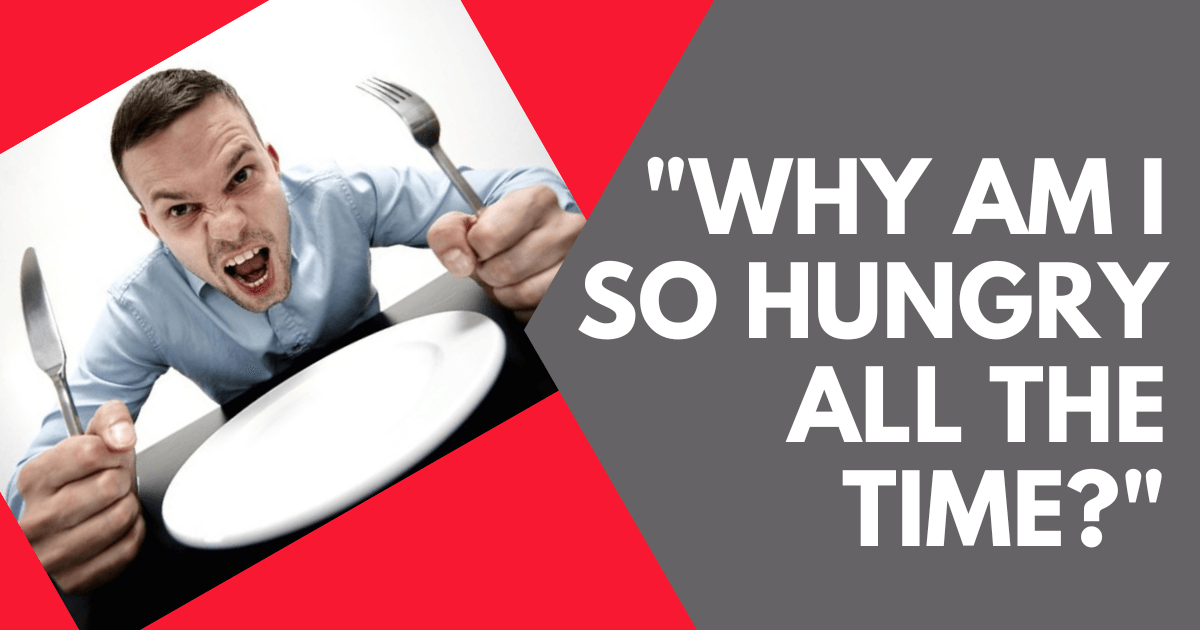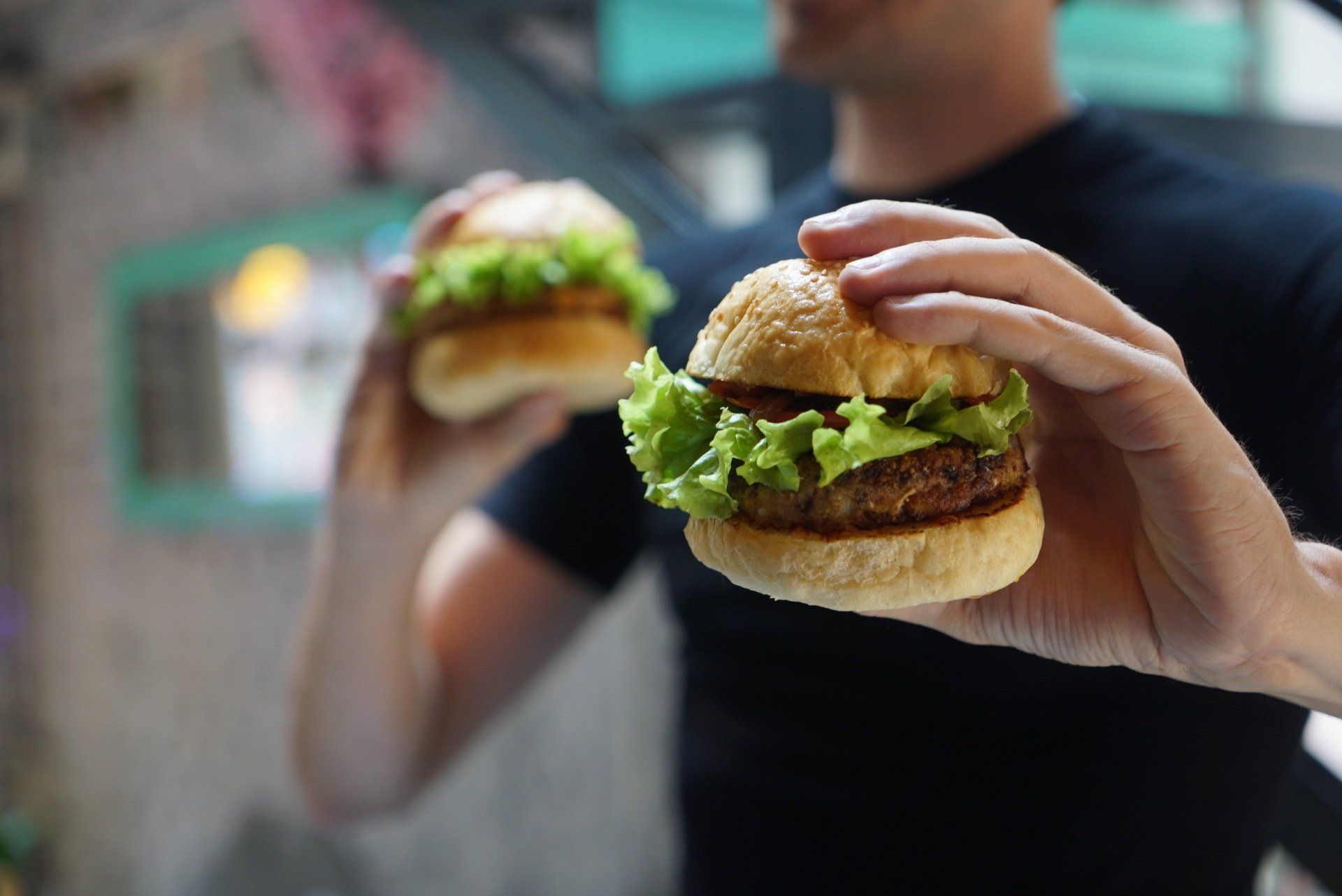
How To Reduce The Amount Of Food You Eat FREE PREVIEW From Our Online Weight Loss Coaching Program You can eat less without f eeling cheated by using a tip only weight loss researchers know about: Paying more attention to your taste buds than your belly. See, your taste buds adapt to flavors quickly. It's a phenomenon scientists call "Sensory Specific Satiety." They habituate to flavors so fast it makes us WANT TO STOP EATING because we no longer get any pleasure out of the food. Watch this video for a further explanation and how you can use it to eat less. This video is part of our online weight loss program . Enjoy!

"Why Am I Always Hungry?" FREE PREVIEW From Our Online Weight Loss Course Welcome to the hunger games! In this lesson, you’re going to learn how to reduce your hunger by 20% or more. This video is part of Neuroslim®, the anti-diet online weight loss program powered by the latest discoveries in neuroscience. Imagine cutting your hunger by 20% or more. Wouldn’t that be great? To not WANT the amount of food you’re currently eating? Imagine the impact on your weight. To understand how you can reduce your hunger you first have to understand that you’ve artificially raised it. Scientists have long known that we make ourselves hungry without knowing it. We do things that inadvertently increase our appetites. That’s the bad news. The good news is that we can stop doing these things and experience a significant drop in hunger. Watch the video for the rest of the story:

Is Weight Loss Without Dieting Possible? As a weight loss researcher I can tell you that science is unequivocal about dieting: It doesn’t work. Systematic reviews of its long-term effectiveness consistently show abysmal failure rates--up to 95% in some cases. These studies prove that dieting should be the main exhibit at The Museum of Failure. Not only does it not work for the vast majority of people, it leaves enormous harm in its wake. From the physical pain caused by deprivation to the emotional toll that can leave you depressed, anxious, and obsessive about food, dieting is toxic to body and soul. Worst of all, there is a growing body of evidence indicating a positive association between dieting and weight gain. So why do we jump at the opportunity to try the next diet that comes down the pike? Because we think we have no choice. We think dieting is the only way to lose weight. We think the problem is that we just haven’t found the right diet. We believe this despite the scientific literature telling us otherwise. Most people are shocked to find out just how much peer-reviewed evidence there is for what I call “No-Diet Weight Loss.” How To Lose Weight Without Dieting No branch of study has contributed more to “No-Diet Weight Loss” than neuroscience. The problem is that the scientists in this field don’t know that’s what they’ve done. For example, when neuroscientists discovered The Meal-Recall Effect they didn’t realize they developed a technique that cuts hunger by up to 50%. How is that possible? How could they not know they invented something that practically guarantees weight loss? Because they didn’t think it was important. The technique wasn’t developed to help people lose weight; it was used to understand memory’s effect on hunger. That it just so happened to be a powerful instrument for weight loss was incidental to their goal. Irrelevant, really. As you’ll see in a later blog post, neuroscientists were far more interested in finding out why amnesiacs never felt full despite eating multiple meals. The Meal-Recall Effect is a perfect example of how powerful weight loss strategies get shoved into the neuroscience vaults and sit forgotten, gathering dust, unrecognized and unused. It was just this kind of published but unpublicized weight-reducing discovery my team of weight loss researchers spent years looking for. We analyzed thousands of peer-reviewed studies, identified the most important discoveries and turned them into a logical, comprehensive, easy-to-implement, no-diet weight loss program we call NeuroSlim®. How To Lose Weight Without Counting Calories “No-Diet Weight Loss” sounds like an oxymoron so let me explain. What if, instead of dieting, you learned a neuroscience technique that weakens your cravings for fattening food? What if, instead of dieting, you used breakthroughs in neuroscience to reduce your hunger by 20% or more? And what if, instead of dieting, you used neuroscience to develop intense cravings for fruits and vegetables? Every tool, technique and insight in our NeuroSlim® weight loss class (and blog) is ripped right out of the most respected studies in the scientific literature. Click here to see hundreds of citations, including links, so you can see which scientists developed each chapter’s insights, tools and techniques, how these scientists came to their conclusions and which academic journals published their works. I did this to show you how rooted the book is in science, to help you verify the information, and find out more about the subject if you want to research it further. NeuroSlim® is not a diet. It does not traffic in recipes, meal plans, or nutritional advice. There isn’t a list of foods to eat or avoid. Unless you grew up in a family that considered gravy a beverage I'm going to assume you know what's healthy and what's not. It isn’t therapy or a support group, either. You will not be asked to “process” your feelings about food, revisit formative experiences with family meals or explore your body image issues. Anti Diet Weight Loss NeuroSlim® is an intuitive eating weight loss class --online--that can reshape your eating habits. That means reducing unnecessary hunger, quitting sugar, weakening cravings for fattening food and developing intense cravings for healthy ones. All through evidence-based techniques developed by the finest minds in neuroscience. No more yo-yo dieting, no more endless cravings, no more restrictive eating plans. The concrete, specific, evidence-based strategies in this program ends the toxicity of dieting--the deprivation, the white-knuckle resistance, the guilt, the perpetual failures. While most of NeuroSlim® borrows from neuroscience, you’ll also see many techniques and insights originating from other fields--like physiology, biology, anthropology and Addiction Medicine. It’s time to start listening to scientists outside the diet industry. They’ve figured out how to reshape our eating habits to produce permanent weight loss. All we have to do is follow their evidence-based advice. Welcome to our blog...and a thinner future!

Questions You Should Ask A Weight Loss Program How much does the program cost? What is the total cost of the weight loss program , from beginning to end? Are there membership fees or fees that are not part of the initial costs? (meal replacements, supplements, or other products, visits food, medical tests, counseling sessions, weight-maintenance follow-ups) What kind of education or training do staff members have? Who runs or oversees the program--a doctor or other certified health professional? Are specialists in nutrition, physical activity, behavior change, and weight loss available? What type of certifications, education, experience, and training do staff members have? How long, on average, have most of the staff been working there? Meal Plans Is there a specific meal plan? Do I have to write down what I eat every day? Am I required to buy special meals or supplements? If so, how much do they cost? Can I make changes to the meal plan based on my likes, dislikes, and any food allergies? Counseling Is there one-on-one or group counseling to establish healthier habits? Does the plan include a trained coach or counselor? Physical Activity Is there a physical activity plan? Does it help me be more physically active and stay motivated? Weight Maintenance Is there a strategy to keep off the weight I’ve lost? What does that weight loss maintenance phase include? Other Features How long is the initial weight-loss program--weeks, months, years? How long is the weight-loss maintenance phase of the program? Are medicines or supplements required? Is there a doctor or certified health professional I can talk to? Can I change the program to meet my lifestyle and cultural affiliations? Is there a plan to combat stress, deal with social eating, sleep, lack of motivation, and other issues? Is the program in person or online? Does the program or product carry any risks? Could following the program’s instructions cause health problems or be harmful in any way--physicall or emotionally? What is in place to ensure my safety while I’m in the program? Will the program’s doctor or staff work with my health care professional for any ongoing medical issues? What results do people in the program typically achieve? How much weight does the average person lose? How long does the average person keep the weight off? Is there written information on the program results? Have peer-reviewed scientific journals published findings of the program’s results

Book or App? What's The Best Way to Get Information From Your Weight Loss Program? There are a lot of different ways to get weight loss information, but which one is the best for you? Some people prefer to attend classes, while others might want a book that they can read at their own pace. Still others might prefer an app that they can use on their phone or computer. The best way to figure out which option is right for you is to ask yourself which source of information appeals to you the most. If you’re not a big reader, then a class might be the best option for you. If you like having all of the information at your fingertips, then an app could be the right choice. No matter what your preference is, there’s sure to be a weight loss plan that can work for you. Here are the two main sources weight loss programs use: Books To Help You Lose Weight •Books are written by experts and are thoroughly researched, meaning the information in them is trustworthy and reliable. • Books are updated regularly, so you can be confident that they contain the latest research and developments in the field of weight loss. • Books offer detailed information which is important for developing a clear plan to achieve your weight loss goals. • Books help keep you accountable by serving as a reminder of your goals, making it less likely that you will make excuses or rationalize bad choices. Apps To Help You Get Skinny •Apps can be more convenient because they can be accessed from anywhere. • Apps can be more personalized because they allow users to input their own weight loss goals and track progress over time. Additionally, some apps allow users to connect with other users and share tips and advice. • Apps can be more engaging because some use gamification techniques to make the process of losing weight more fun and interactive. • Some apps provide rewards for reaching milestones, which helps motivate users to stick with their weight loss goals. • Apps can be more affordable because many are available for free or a nominal fee. Additionally, some apps offer in-app purchases that help save money on things like workout equipment or healthy food items. • Apps can be more accessible than traditional sources of weight loss information because they do not require an Internet connection

What to Look for in a Family-Friendly Weight Loss Program When you're trying to lose weight, the last thing you want to do is try to go it alone. Not only is it more difficult to stick to a healthy eating plan when you're the only one in your household doing it, but it can also be hard to find foods that everyone in your family will enjoy. That's why it's important to find a weight loss program that is inclusive and accommodating for families. Here are some things to look for: Flexibility: A good weight loss program will be flexible enough to accommodate different preferences, budgets, and tastes. It shouldn't be so restrictive that everyone in your family is left feeling deprived; instead, it should offer a variety of healthy options that everyone can enjoy. Simplicity: A good weight loss program will be simple enough that you don't need a degree in nutrition to follow it. All of the guesswork should be taken out of meal planning, so you can focus on enjoying time with your family instead of stressing over what to make for dinner. Effectiveness: Last but not least, a good weight loss program will actually work. It should help you lose weight in a healthy way and keep the weight off for good. It should also provide you with the tools and knowledge you need to maintain a healthy weight once you reach your goal. If you're looking for a weight loss program that the whole family can get behind, be sure to look for one that is flexible, simple, and effective. Find a program that offers a variety of healthy food options, takes the guesswork out of meal planning, and actually helps you lose weight and keep it off. With so many programs available, there's no reason not to find one that meets all of your needs.

The Pegan Diet A Weight Loss Diet Plan For Men? If you're looking to make some changes to your diet in the new year, you may have heard about the Pegan diet. This is a relatively new way of eating that combines aspects of both the paleo and vegan diets. Created by Dr. Mark Hyman, this diet has been selling like hotcakes since it was released last year. So what is the Pegan diet all about? And is it right for you? In this blog post, we will take a closer look at the Pegan diet and see if it might be a good fit for your needs. The Pegan diet is based on the premise that the best way to eat is to focus on whole, unprocessed foods. This means eating plenty of fruits and vegetables, as well as lean protein sources and healthy fats. Processed foods, sugary drinks, and refined carbs are off-limits on this diet. One of the key aspects of the Pegan diet is that it is plant-based. This doesn't mean that you have to become a vegan, but rather that you should base your meals around plants. Fruits and vegetables should make up 75% of your plate, with the remaining 25% coming from animal products like meat, poultry, fish, or eggs. Another important aspect of the Pegan diet is that it is grain-free. This means that you will need to find alternative sources of carbohydrates, such as sweet potatoes, squash, and leafy greens. One of the benefits of the Pegan diet is that it can help you lose weight. This is because it focuses on whole, unprocessed foods that are low in calories but high in nutrients. This type of eating can help to reduce your overall calorie intake and lead to weight loss over time. Another advantage of the Pegan diet is that it can help to improve your overall health. This is because it includes plenty of fruits and vegetables, which are packed with vitamins, minerals, and antioxidants. Eating a variety of these nutrient-rich foods has been linked with a reduced risk of chronic diseases, such as heart disease, cancer, and diabetes. So, should you try the Pegan diet? If you're looking to improve your health and lose weight, then this may be a good option for you. However, it's important to speak with your doctor or registered dietitian before making any major changes to your diet. They can help you determine if the Pegan diet is right for you and make sure that you are getting all the nutrients you need.

Does Your Weight Loss Plan Have Portion Size Guidelines? While all weight loss programs will tell you what foods should be included in the diet, few offer tips about controlling those pesky hunger pangs and cravings with smaller serving sizes. Losing weight is hard enough, but when you're constantly fighting your own body it can seem impossible. Many people struggle with portion control as much as their food choice, So it's important that your weight loss plan gives you strategies on portion control. This is a lot easier said than done because portions have grown astronomically over the years. Just as a quick example, the standard portion size for potato chips used to be half an ounce. Today it's a full ounce. Think about that. A regular portion of potato chips is now 100% bigger than it was just a few years ago. We’ve become habituated to big portion sizes. We are the Super-Size Me culture. If your weight loss plan doesn't have well, a plan to combat what scientists call the portion size affect, then you don't have much of a chance of achieving sustainable weight loss. Overeating can easily sabotage any diet plan. Knowing how to reduce your portion sizes is critical for weight loss. It's a two-step process. First you have to understand what a normal size portion is for a food, given your sex, age, and weight. Often, you cannot rely on packaging labels to give you an accurate portion size. See our potato chip example above. Second, the weight loss plan should have a strategy to get you from Big portions and normal sized portions. once the body has habituated to large portion sizes it will be extremely difficult to Simply start eating 50% less what you normally eat. Any weight loss plan that doesn't recognize that you have to step-ladder your way down to a normal-sized portion is not going to be very helpful.

Find a Weight Loss Program That Fits Into Your Social Life When it comes to choosing a weight loss program , many people don't think about how it will impact their social life. It's important to consider the rules of the program and how easy it is to comply with them outside the home. For example, if you're on a diet that doesn't allow you to eat out at restaurants, but you often go out with friends or colleagues, then the diet isn't going to be very sustainable. Make sure you choose a weight loss program that fits into your lifestyle! Also, consider how your friends and family will react to your new diet. Will they be understanding or will it cause tension in relationships? How will your partner react when they spend hours baking a fattening cake you refuse to eat? How awkward will you feel when you go out to eat with your boss and a main client and you refused the communal aspects of dining because it doesn't fit the diet plan? Imagine going to a family event and you can't eat anything on the picnic table because it doesn't fit your diet plan. no matter how well you explain your weight loss journey there are bound to be people you think you're being a passive-aggressive snit and that you’re obsession with thinness is more important than your place in the family. It's important to communicate with loved ones about your weight loss journey and work together to find a program that works for everyone. Don't let a restrictive diet ruin your social life - choose a weight loss program that fits into your lifestyle and relationships. In the end, it's important to remember that weight loss is a journey and finding the right program may take some trial and error. Don't be afraid to switch programs or make adjustments if something isn't working for you or affecting your social life in a negative way. Stay focused on your goals and find a weight loss program that fits into your lifestyle and relationships. Good luck on your journey!

How Inclusive Is The Weight Loss Program You’re Considering? When considering a weight loss program, it's important to think about how it will fit within your family dynamic. Restrictive, individualized diets like keto may not be feasible for households with a range of dietary preferences and needs. Instead, look for programs that offer an inclusive approach, with options and flexibility for all family members to participate. In addition to being easier to sustain long-term, a household-friendly diet can also have added benefits such as improved communication and bonding over meal planning and preparation. So before signing up for a weight loss program, consider how it will work for the whole family. For example, eating keto is doable for an individual but not for a family. Mos t diet plans for weight loss aren't typically designed for groups of people. They're more like an every-man (or woman)-for-himself scenario. Inevitably, these plans leave their families behind. When only one family member is dieting, compliance can be difficult. It's easier to fall off the wagon when everyone else is digging into their favorite food, and you're stuck with a prepackaged meal. If you live with a partner or a family, it's important to pick a family-friendly weight loss plan. There are two things you should look for: Flexibility A good weight loss program will be flexible enough to accommodate different preferences, budgets, and tastes. It shouldn't be so restrictive that everyone in your family is left feeling deprived; instead, it should offer a variety of healthy options that everyone can enjoy. Simplicity A good weight loss program will be simple enough that you don't need a degree in nutrition to follow it. All of the guesswork should be taken out of meal planning, so you can focus on enjoying time with your family instead of stressing over what to make for dinner. When it comes to weight loss, one size definitely does not fit all. That's why it's important to choose a program that takes individual preferences and budgets into account. A good weight loss program should offer a variety of healthy options, and shouldn't be overly restrictive or complicated. Meal planning should be easy and stress-free, allowing you to spend more time with your family and less time worrying about what to eat. By finding a flexible and customizable program, you can successfully achieve your weight loss goals without feeling deprived or overwhelmed.



